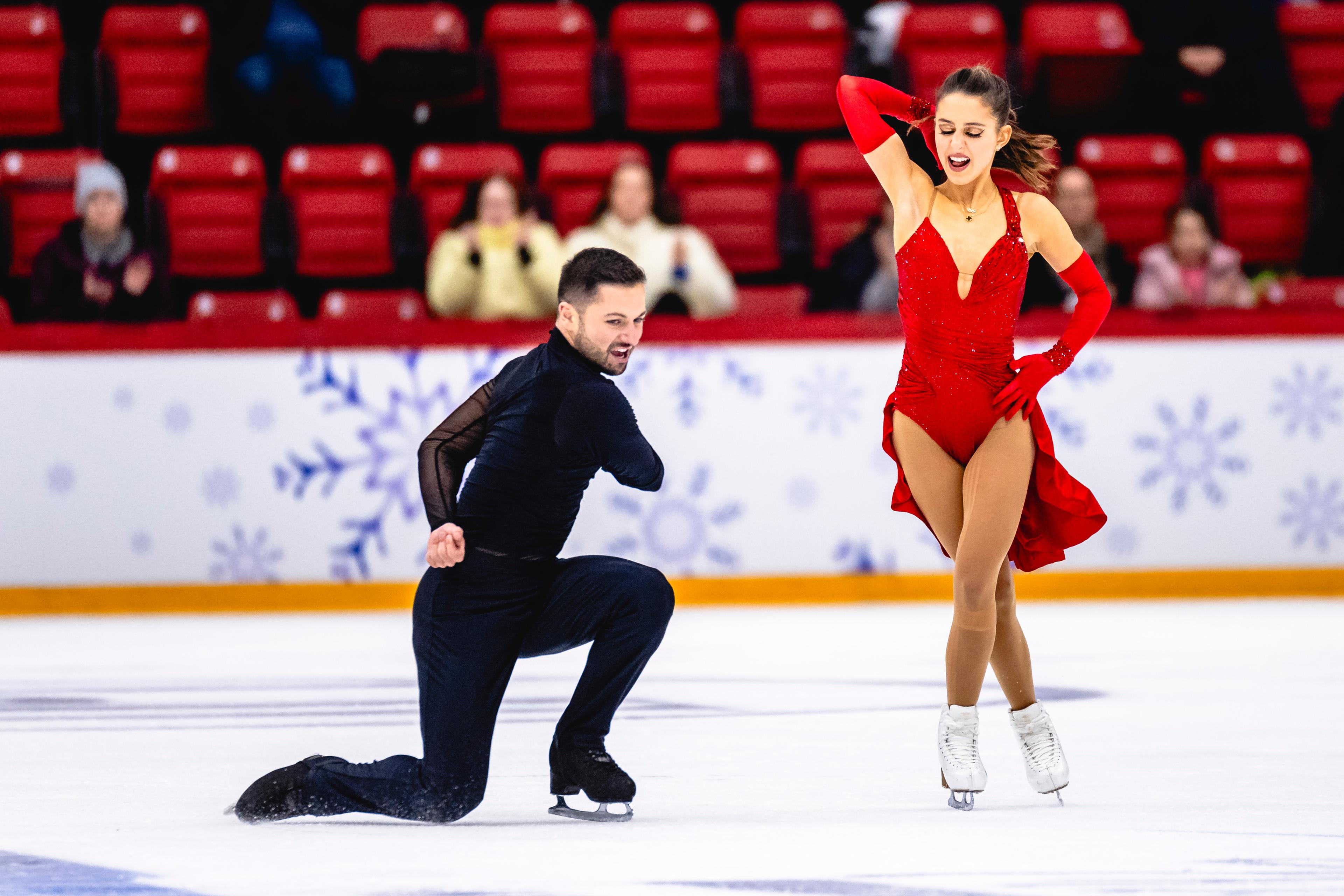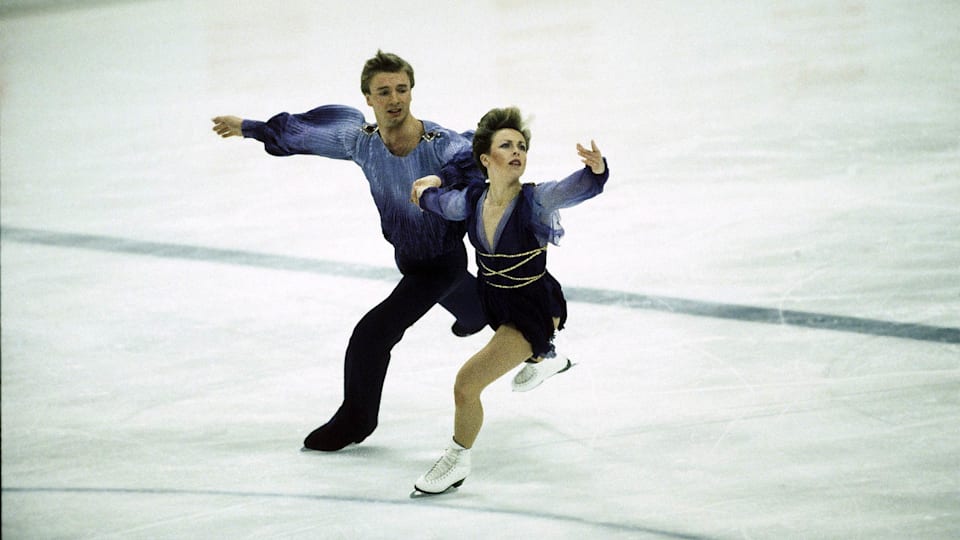In Boston, under the dazzling lights of the 2025 World Figure Skating Championships, history came full circle for Great Britain. Ice dancers Lilah Fear and Lewis Gibson claimed the bronze medal — the nation’s first world medal in figure skating in 41 years. The last time Britain stood on a Worlds podium was when Jayne Torvill and Christopher Dean reigned supreme, dominating the championships from 1981 to 1984 and etching their names in Olympic history with the unforgettable Bolero at Sarajevo 1984.
A Moment That Felt Like Destiny
For British skating fans, the bronze medal felt less like a victory and more like a revival of a dream. As the announcer’s voice confirmed their placement, the British contingent erupted in cheers, many overcome with emotion at witnessing something thought impossible for decades.

Lewis Gibson raised his fist to the air, his face a mix of disbelief and joy, while Lilah Fear pressed her hands to her heart, tears streaming down her face.
“This isn’t just for us,” Fear told reporters backstage. “This is for every British skater who held onto hope, and for Torvill and Dean, who showed us what was possible. We just wanted to carry that legacy forward.”
Echoes of Torvill and Dean
The shadow of Torvill and Dean has loomed large over British figure skating for more than four decades. From their first world medal in 1981 to their Olympic gold in 1984, their artistry and innovation forever changed the sport.
Gibson reflected on the weight of that history: “Jayne and Chris weren’t just champions, they were pioneers. To be mentioned in the same sentence is humbling. We grew up watching Bolero, and now we hope some young kids are watching us and believing they can get here too.”
In a touching gesture, both Fear and Gibson dedicated their medal to Torvill and Dean, who have mentored them through parts of their career and continue to inspire them.
A Performance to Remember
Their medal-winning free dance was a vibrant, emotionally charged routine set to a medley that blended modern beats with orchestral swells. From the opening lift to the final twizzle sequence, the performance was a masterclass in precision, connection, and storytelling.
The Boston crowd, already captivated by the drama of the competition, gave Fear and Gibson a roaring ovation. Judges rewarded their performance with personal-best scores, pushing them onto the podium.
Fear recalled the surreal moment: “When we finished and the whole arena stood up, I thought of the little girl version of me skating on a tiny rink in London. I never imagined this.”
A New Chapter for British Skating
The bronze medal doesn’t just mark a personal milestone for Fear and Gibson — it signals a potential turning point for British figure skating as a whole. With renewed attention and a fresh wave of young skaters entering the scene, their success could ignite momentum similar to what Torvill and Dean sparked in the 1980s.
British skating officials were quick to recognize the moment’s significance. “This is proof that Britain belongs on the world stage again,” said one team representative. “Lilah and Lewis have inspired a generation tonight.”
Carrying the Torch Forward
Fear and Gibson’s journey has not been without struggle. Training far from home, balancing financial challenges, and competing against countries with deep figure skating traditions, they have fought for every step forward.
Lewis Gibson summed it up: “We’ve always said our dream wasn’t just to skate—it was to make people feel something. Tonight, I think we did that. And that means more than any medal.”
For Torvill and Dean, watching from afar, the moment was surely bittersweet. Their own farewell documentary aired earlier this year, capturing the end of an era. But in Boston, a new era was being written.
A Night That Will Live On
As Fear and Gibson left the ice, British flags waved proudly in the stands, many fans visibly moved. For the first time in over four decades, they had seen their country rise to the world podium again.

The echoes of Bolero still linger in skating history, but tonight in Boston, the rhythm was new. It was Lilah Fear and Lewis Gibson’s turn to make their mark — and they did so with brilliance, heart, and a legacy that now firmly belongs to them.
“Forty-one years is a long time to wait,” Fear said softly, holding her bronze medal. “But it was worth every second.”
FULL VIDEO :
